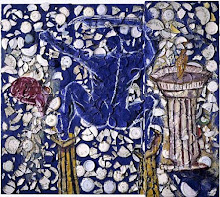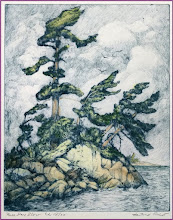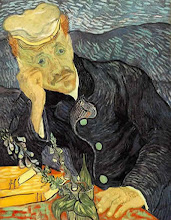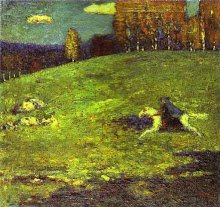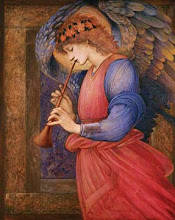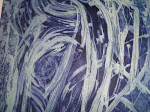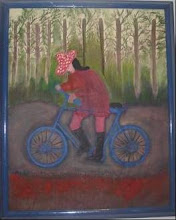“Do you ever think about where Len is?”
We were walking through dense fog around the cove along the Damariscotta River. It had been raining hard since before dawn on this late December morning two days after Christmas, and my friend, Judy, and I had paused on a rise on a peninsula jutting out into the gray waters. Then Judy had asked the eternal question, the question that I had once imagined, in hubristic youth, that I might answer (never mind that no one from Buddha to Beethoven had ever been so enlightened). Surely my much older husband who loved me more than life itself, would give me some kind of sign when he passed, would tell me where he had gone.
It was the twenty-fifth anniversary of his death, and there had been no sign. Even so, I continued to feel, as I had for the previous December 27ths, that I must not let the day go unmarked, must do something extraordinary, something that would put me into an altered state such that, if there were some parting of the clouds, some voice in the wind, I, faithful widowed amanuensis, would be ready to receive it.
I hadn’t planned to be in Edgecomb, Maine, but it had worked out that way. The day before I had driven from Massachusetts to New Hampshire, where I picked up my dad, who had spent Christmas with my sister, and ferried him back to his condo in southern Maine. Since Judy lives sixty miles north and since I rarely see her more than once or twice a year, sometimes even less, I drove to her house for dinner and an overnight, returning to Massachusetts the next day. It was enough road-time for a long-distance trucker—over five hundred miles—and the weather was lousy, that dreadful combination of rain and snow that forecasters have dubbed a “wintry mix.” There were weather advisories up and down the Maine coast, but I was acutely conscious that one day I might not be capable of transporting myself across three New England states in two days.
Judy is my oldest friend; I have known her since we were in Mrs. Moore’s kindergarten class at the Berkshire Country Day School. Mrs. Moore was plump and mean with short gray hair and always yelling at us for failing to hang up our coats or talking out of turn or using too much construction paper. Mrs. Moore is surely no longer among the living, no doubt she is bossing around other dead folks, possibly even Len himself, though I hope, for his sake, not. Anyway, Judy is one of a handful of people who remembers that my long-dead first husband used to call me “Beckala,” someone to whom I can say, “Len died twenty-five years ago today,” and she will nod and look hard into my eyes, and not feel sorry for me or accuse me of being morbid or secretly wish I’d talk about something else, such as the multiple mistresses of Tiger Woods.
Still, my old buddy groused when I proposed our rainy outing. She’s actually a lot tougher than I am, having sailed around the world with her husband and four children and now supporting her family by laboring on the night shift as the ER doc in the local hospital. Judy, who had worked all Christmas day, fussed so much about the weather that her twenty-one-year old daughter joked that it wasn’t as if she was going to melt. There’s nothing like being reprimanded for wimpiness by one’s smug offspring, and so Judy put a sock in her whining, and agreed to go. Fishing in her downstairs closet, which looked like a seconds outlet for L.L. Bean, she hauled out enough rain gear for the two of us: slickers with hoods, rain pants and rubber boats. And then we set off, leaving behind half-filled cups of coffee and bits of soggy waffles in pools of maple syrup, leaving behind the warm, pellet-stove-heated home.
“I used to think that Mom was in some horrible place after she died,“ Judy said, as we stood looking over the river, whose seal-colored waters were just visible beneath the mantle of fog. Judy was referring to her mother’s death in a plane crash thirty-one years ago, an event that we always seemed to come back to when we got together, not because we had nothing else to talk about but because neither of us had many friends who could travel so far back in time. Who else knew that her mother kept her girlish figure by parking her car in the furthest spot in the supermarket lot so that she would be forced to get the extra exercise? Or that she set the breakfast table every night before she went to bed? Who else remembered that night in September in 1978 when her parents were flying across Maine in a single-engine Piper plane, her father at the controls, the gas gauge nearing empty, with not enough gas to get to Bangor, and so they had to land in Greenville, which was a podonk airport, with its lights on the blink, and they had missed the runway and crashed into a mountain. Judy’s mother had died instantly, her father had survived with cracked ribs and a broken ankle.
“I know exactly what time it happened,” Judy said, explaining that she had recovered her mother’s watch, which was stopped at 8: 06 p.m., “but the oddest thing was I didn’t have any horrible premonition at that time. Just the opposite, I was camping out in the Catskills and looking up at the stars and feeling this incredible sense of well being. For a long time, I felt guilty about being so happy at the moment when Mom died, but then I thought, ‘Wait a minute, maybe this means that she is OK, that she is in a peaceful place.'”
The rain had begun to let up, and we were both silent. Judy had readjusted her tasseled hat beneath her hood so that a greater portion of her strong-boned face was exposed to the elements, revealing, as she did so, several strands of chestnut-dyed hair gone white at the roots. It always took some getting used to: seeing one another after the gaps between our visits. We still saw the goofy kid smirking in the hallway of the Berkshire Country Day School, doing time for some childhood infraction. We could not get used to the fact that we were light years away from those days. Judy had outlived her dead mother by seven years, and I was exactly the age Len had been when I first met him, which meant that if I lived as long as he did, I had seven years, a calculation that took my breath away.
“’Look for me under your boot soles," I finally said, quoting Walt Whitman's Song of Myself. "Len loved that line.”
“Do you still think about him, even after all these years?” Judy asked.
“Every day. I mean I don’t talk about him, or people will think I’m meshugganah, but not a day goes by when I don’t remember something funny he said or some insight he had. Last week I saw this movie, A SERIOUS MAN, at the Amherst Cinema, and when the credits started rolling and the screen flashed to the line, ‘No Jews were harmed in the making of this movie,’ I laughed so hard people started giving me dirty looks. Of course they didn't know I was laughing not just for me, but for Len too.
“Laughing for two, I love it,” Judy said, reminding us, without having to spell it out, that her own childhood boisterousness had landed her in the hall at the Berkshire Country Day School.
Then we started home. Judy picked up the pace and I trudged behind her, negotiating a bit of rain-slicked ice along the path, ice that was bisected with strands of frozen grass. I laughed as I yelled at her to slow down, thinking to myself that I really didn’t want to commemorate this day by breaking a bone.
By the time we returned to the small gray-shingled farmhouse, it was no longer drizzling but we were still soaked. We stripped down to our long underwear and left our clothes on the red bricks in the front hall. Judy explained that her house had radiant heat, and so we could just leave everything in a heap and it would dry. But she said she was going to throw my socks in the dryer, and that she’d get me a clean pair, and that I didn’t need to send them back, that I should consider them her Christmas gift to me: a thick pair of navy wool ankle socks. Then she made us a pot of chamomile tea.
“Do you know that line from that Country-and-Western song, ‘When you get the chance to sit it out or dance, I hope you’ll dance’?” Judy asked, as we sipped our tea.
“It’s so corny and I always cry when it comes on the radio and my kids always laugh at me. But it says it all. So thanks for getting me to dance.”
Four days later, Judy and I were e-mailing each other; apparently, I had left behind a woolen scarf ("I figured it's yours because it's blue," Judy said). It was New Year’s Eve, and there was a blue moon. A blue moon occurs when there are two full moons in one month. The expression comes from the fact that people used to refer to the twelve moons in the calendar year by specific names, such as the harvest moon or the wolf moon. The blue moon, which was also called a betrayer moon, was reserved for that extra moon that didn’t have any special designation. A blue moon has nothing to do with its color, though in 1883 after the eruption of Krakatoa in Indonesia, the moon was blue for nearly two years, owing to the smoke and dust from the volcano. Blue moons are actually quite common: with the normal lunar cycle at twenty-nine days, a blue moon appears once every 2.7 years. But blue moons falling on New Year’s Eve are rare.
I shared some of this celestial trivia with my oldest friend, then asked her to keep the scarf until we next saw one another. I said that I hoped we would still be well enough to hobble around the Damariscotta River in 2028, the next time there would be a New Year’s Eve blue moon. I told her that even though it sometimes seemed that we only saw one another ‘once in a blue moon,’ it didn’t matter because when we were together, time stopped, and we made up for all the months or years we had lost.
She e-mailed back right away, promising to safeguard the scarf. She said that we had better get together before the next blue moon or she’ll be really unhappy. Then it occurred to me that maybe here, in my Google mail inbox, is what I have been looking for, the sign from the cosmos that all is well. Then I spied the huge blue moon rising outside my window, and imagined I could almost make out Len’s Roman-coin-like profile in its craggy convexities.
Introducing Frida von Zweig
3 years ago
